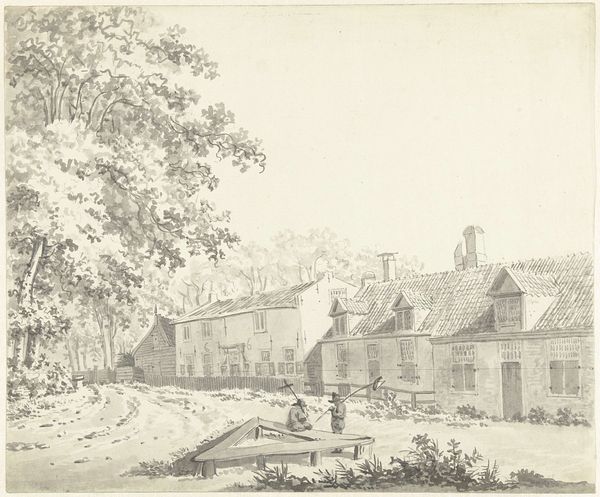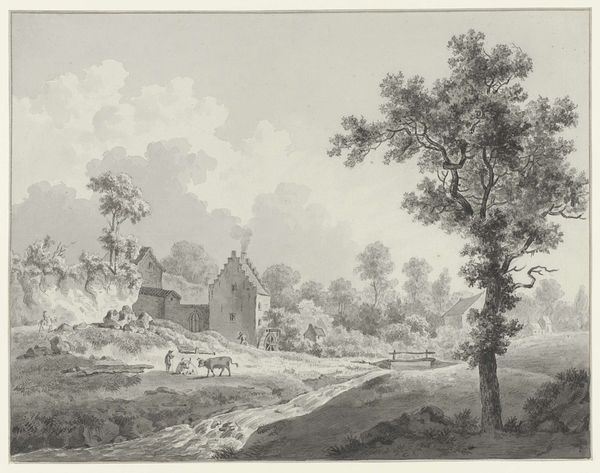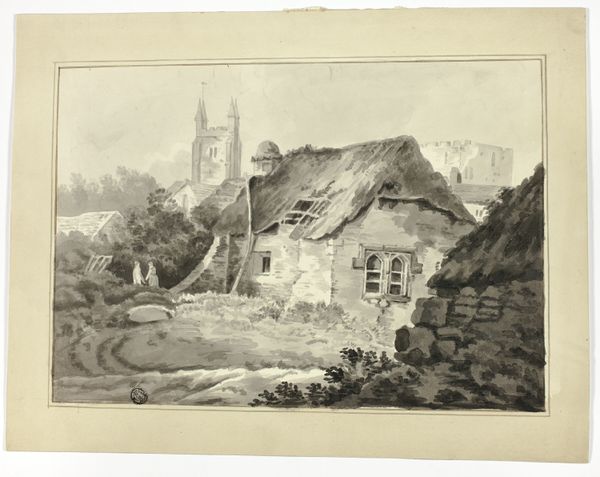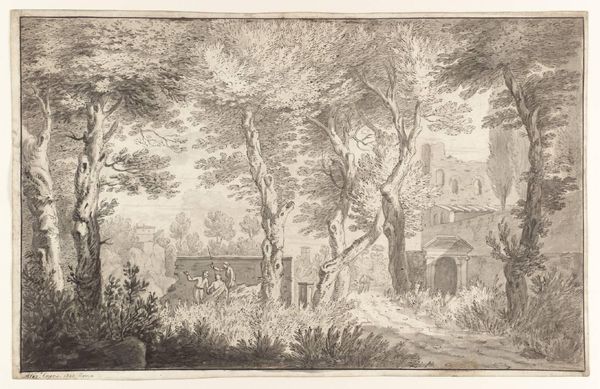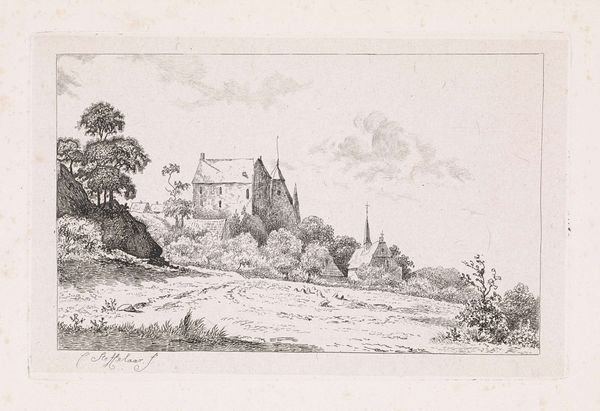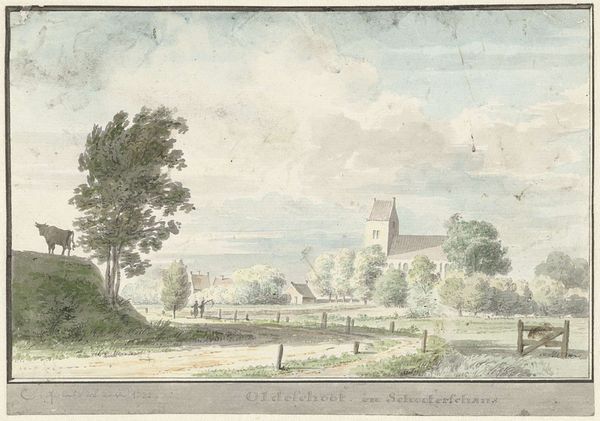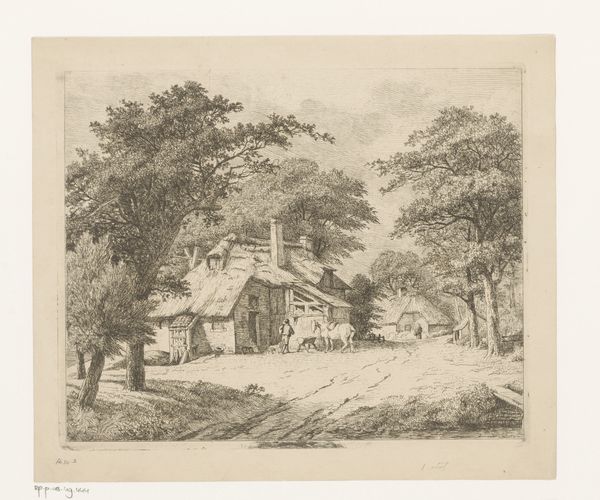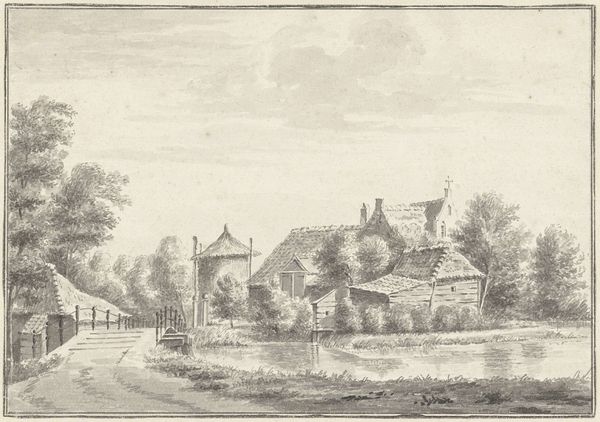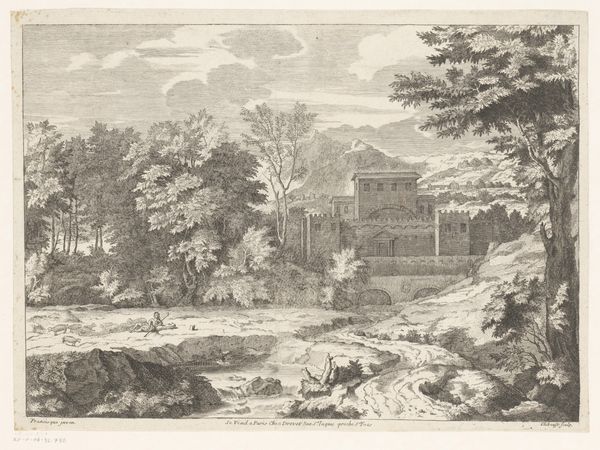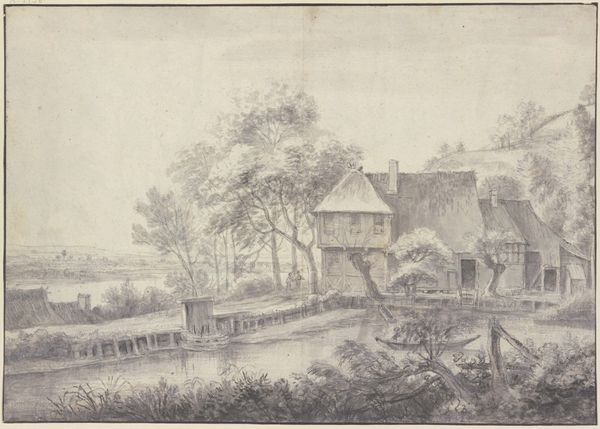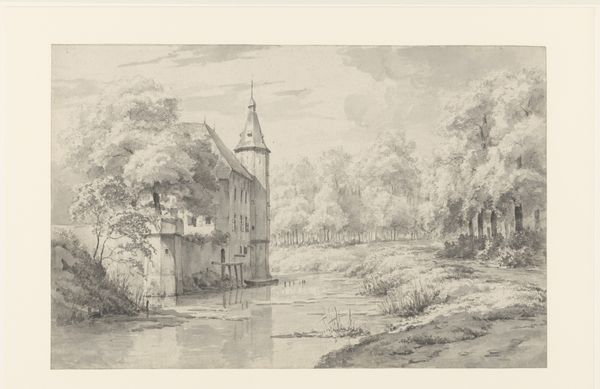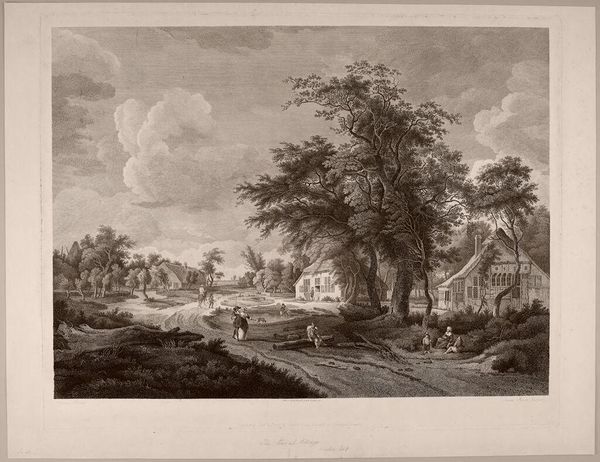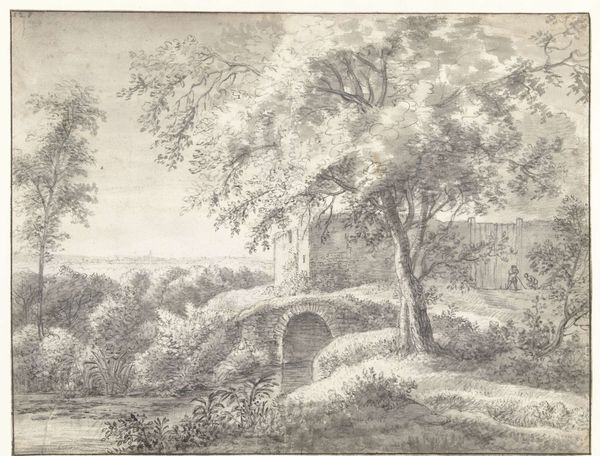
Dimensions: support: 195 x 459 mm
Copyright: CC-BY-NC-ND 4.0 DEED, Photo: Tate
Editor: This is William Taverner's "Italian Composition: The Outskirts of a Town". It's undated, but he lived in the 18th century. It's a watercolor piece. I'm really struck by the composition, almost like a stage set. What do you see in this piece? Curator: I observe a carefully constructed arrangement of forms. Note the interplay between the architectural elements and the organic shapes of the landscape. Consider how Taverner utilizes line to define the structures, contrasting with the washes that suggest the natural world. The tonal variations also create depth. Editor: So you're saying it's less about the place itself and more about how he puts the picture together? Curator: Precisely. The subject matter is secondary to the formal arrangement. Taverner directs our gaze through the strategic placement of shapes and the subtle shifts in light and shadow. Editor: That makes sense. I was so focused on what it was that I missed how it was. Thanks!
Comments
tate 9 months ago
⋮
http://www.tate.org.uk/art/artworks/taverner-italian-composition-the-outskirts-of-a-town-t08512
Join the conversation
Join millions of artists and users on Artera today and experience the ultimate creative platform.
tate 9 months ago
⋮
William Taverner, a lawyer by profession, was also a talented amateur watercolourist. The majority of his paintings depict imaginary, ideal compositions in the manner of the great classical masters, Lorrain, Poussin and Dughet. This subject is an Italianate ‘capriccio’ (a composite of different subjects) featuring a classical temple in the distance resembling the Temple of the Sibyl at Tivoli. Although highly respected as an artist, Taverner was reluctant to display his work, and, according to one contemporary, ‘had much quaking abt. shewing his pictures’. Gallery label, April 2007
